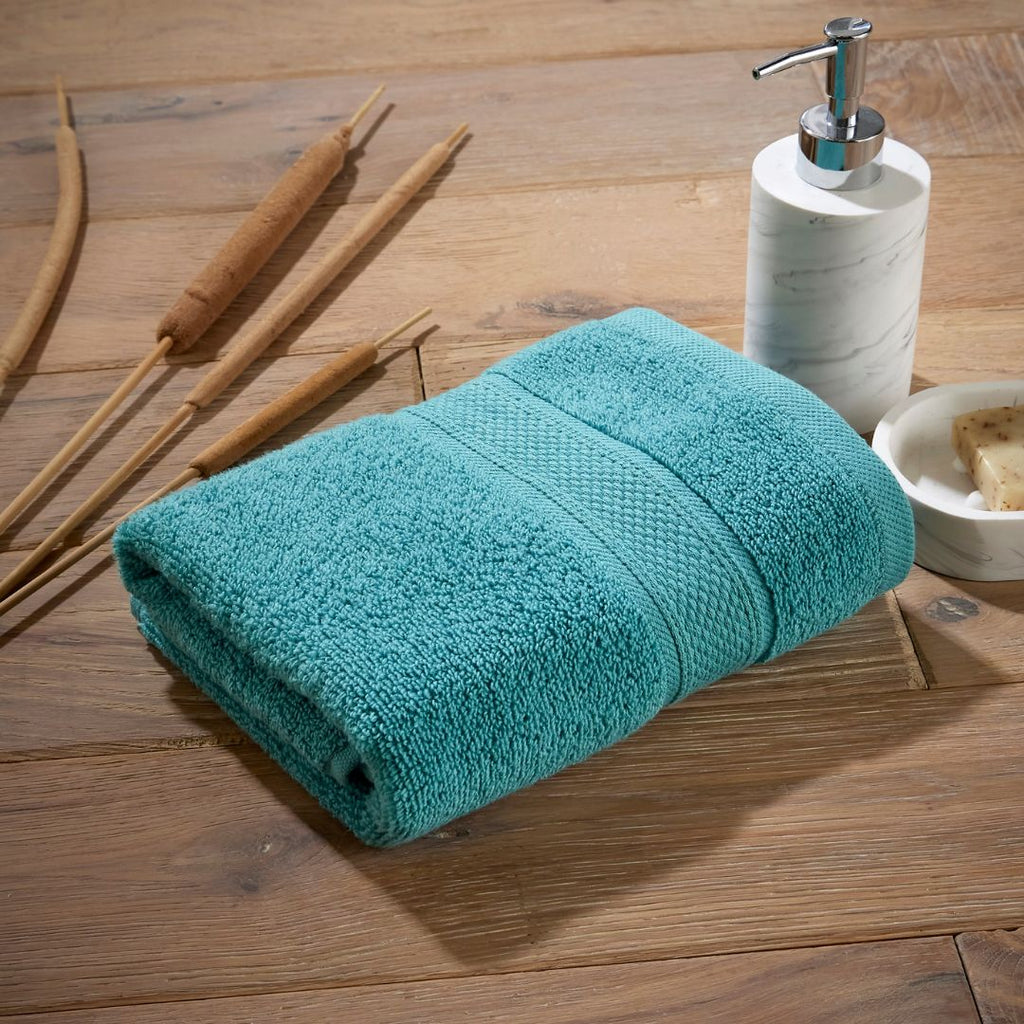Your Ultimate Luxury Towels Match (3 types)

You don’t need to spend a lot of money on luxury bathroom towels for the ultimate post-bath dry down. In fact, we want you to be able to enjoy luxury towels for less. So, find your perfect match with us!
100% Pure Cotton Towels
Easy to clean without losing their quality, we carefully craft 100% pure cotton towels to give you the ultimate post-shower routine. They’re highly absorbent, which makes them effective in drying off your body quickly after washing.
Meanwhile, they’re soft to the touch, and allow air to circulate freely (meaning no musty odours can develop!).
Ripple Texture Towels
For absorbency
100% pure cotton
Using a contemporary woven pattern, this 100% cotton towel offers a sleek feel. Made from a pristine, timeless white cotton—indulge in the plush perfect blend of softness and indulgence.
To preserve the quality of your towels always wash at 40 degrees and dry naturally or tumble dry at a low heat.
Soft Zero Twist Towels
For easy-care
100% pure cotton.
Wrap yourself in lightweight softness with these absorbent towels by the Pure Linen Company. Luxuriously smooth, these zero twist towels treat your skin with extra care, without weighing you down. Their quick drying qualities make them as practical as they are indulgent; effortlessly combining practicality with luxury.
Durable, ensuring your towels can withstand frequent use and washing without easily wearing out. Can be machine washed and dried without losing their quality.
Gentle on the skin, making it suitable for individuals with sensitive skin. Free from synthetic materials, they are less likely to cause skin irritation or allergic reactions.
Available to shop in varied colours.
Four Row Cord Towels
For softness
100% pure cotton
Embellished with four elegant rows of cord stitching, this 100% cotton white towel offers a sublime feel. A timeless, plush white cotton with warm grey cord stitching—this towel offers the perfect blend of softness and luxury.
Available to shop in core colours & embroidery options.
